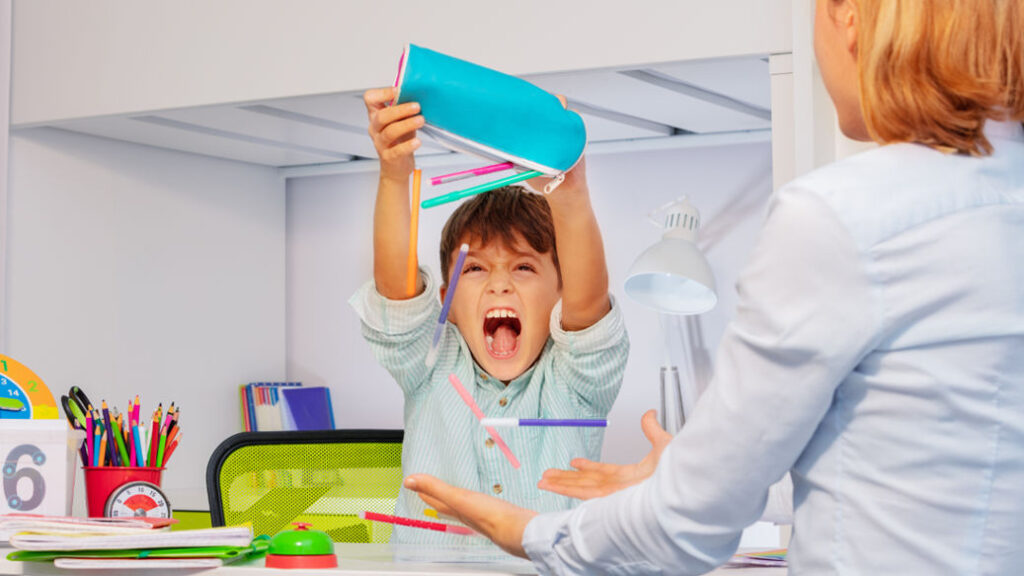
Conduct disorder (CD) is a serious behavioral condition where children consistently violate the rights of others, disobey rules, and engage in aggressive or destructive behavior. For families in Dubai facing such challenges, understanding this disorder is the first step in seeking help and improving family well-being.
Conduct disorder is characterized by a consistent pattern of behavior where a child repeatedly violates the rights of others and disregards societal norms and laws appropriate for their age. This can manifest through aggression toward people and animals, bullying, physical fights, and the use of weapons causing severe injury. Children with this conduct disorder may engage in sexual misconduct, deceit, theft, property destruction, vandalism, and significant rule-breaking such as truancy or running away from home.
This condition is severe and one of the main reasons children are referred to healthcare services. Conduct disorder exists on a spectrum of disruptive behavioral disorders, often associated with oppositional defiant disorder (ODD), AKA odd conduct disorder, and can occur alongside other psychiatric issues like depression, ADHD, and learning disorders.
Conduct disorder is a complex issue influenced by biological, psychological, familial, and social factors. Genetics play a role, but family dynamics and parental mental health are significant contributors. For example, children of parents, especially mothers, with severe depression or aggressive tendencies are more likely to exhibit conduct disorder symptoms. Maternal depression can exacerbate a child’s aggression and other behavioral problems, leading to a cycle of worsening family and child well-being.
Family dynamics refer to the interactions, roles, and relationships within a family that shape behavior and mental health. Positive family dynamics, characterized by warmth, support, and effective communication, promote emotional support, resilience, and a sense of belonging. These dynamics evolve and are influenced by cultural values, social norms, individual personalities, and personal experiences.
The quality of family dynamics is crucial to a child’s development and mental health. Supportive family environments foster healthy emotional development and secure attachments. In contrast, dysfunctional dynamics—marked by poor communication, excessive control, or ineffective conflict resolution—can lead to emotional distress, strained relationships, and mental health issues.
For instance, substance abuse or mood disorders within a family can disrupt the entire family’s relationships and well-being. Dysfunctional dynamics can cause neglect or abuse, increasing the risk of conditions like PTSD and conduct disorders. Blurred family boundaries can hinder personal autonomy, while close family bonds and structured responsibilities, such as household chores, promote accountability and responsibility.
Statistics indicate that families of children with conduct disorder often experience significant stress and dysfunction in their family dynamics, exacerbating both the child’s condition and the family’s overall mental health. Educational and behavioral problems linked to conduct disorder can strain relationships with teachers and school staff, leading to academic failure and decreased self-esteem in affected children.
Several factors increase the risk of developing conduct disorder, including male gender, maternal smoking during pregnancy, poverty, and parental issues like substance abuse or criminal behavior. At the level of familial issues and family dynamics factors such as exposure to physical or sexual abuse, domestic violence, family instability, harsh discipline, and parental rejection also contribute to the risk. Children in such environments are more likely to develop conduct disorders due to these compounded stressors and influences.
Children who do not live with both biological parents often experience lower psychological well-being, health issues, academic struggles, and future economic challenges compared to those in intact families. Parental separation is linked to more externalizing problems, such as behavioral issues, which can persist into adulthood. Children from divorced families typically show lower emotional well-being and more behavioral problems.
On the other hand, conflict-ridden but stable families can negatively impact children more than parental separation. Maternal depression and economic hardship often explain the lower emotional well-being in children from separated families.
Moreover, children in stepfamilies also face poorer outcomes compared to those from intact families, often due to complex family relationships and role ambiguities. While having a stepparent can sometimes provide financial and emotional support, it often introduces additional challenges. Stepparents may devote less time and effort to stepchildren, and the presence of stepsiblings can create further complications. Despite these challenges, positive dynamics in stepfamilies can still offer benefits such as improved financial stability and parental monitoring.
At Talking Brains Center in Dubai, we specialize in helping families understand and address the underlying causes of conduct disorder. Our psychologists in Dubai works with children and their families to create a healthier, more supportive environment.
Conduct disorder is a complex issue, often influenced by family dynamics, mental health issues, and social factors. For families in Dubai, UAE, understanding how these elements interact is essential for addressing the condition effectively. By fostering positive family environments and seeking professional support, families can help their children manage and overcome the challenges associated with conduct disorder.
For more information or to schedule a consultation at Talking Brains Center (TBC) Dubai, contact us today.